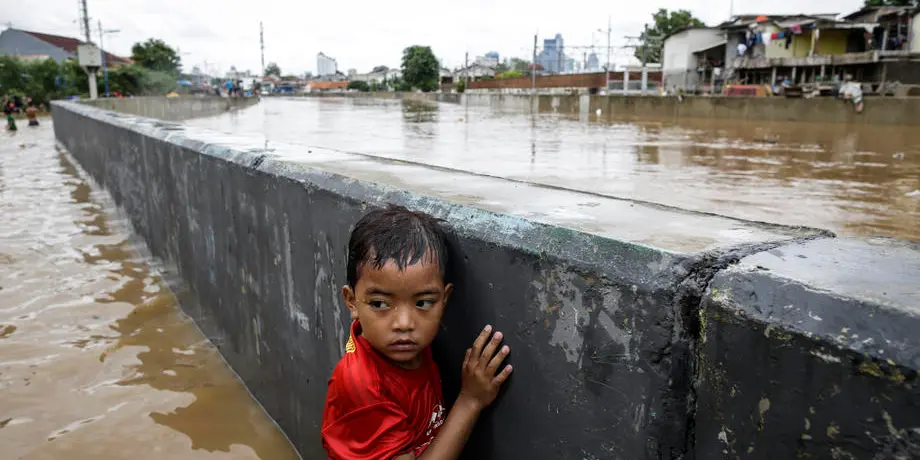
Indonesia’s green economy efforts deserve scrutiny, but also support
November 15, 2021

By Kasit Piromya
At the recent COP26 climate conference in the Scottish city of Glasgow, Indonesia was one of more than 40 countries that pledged to transition away from “unabated coal power generation” in the next few decades.
Although Indonesia endorsed just three of the pledge’s four clauses – excluding Clause 3, related to issuing new permits for coal-fired projects – it was a step in the right direction from the world’s biggest coal exporter, and one of the biggest emitters of greenhouse gases globally, for which coal comprises a significant amount. In its pledge, Indonesia promised to reach net zero by 2060, or sooner with international assistance, and said it would “consider accelerating coal phase out” into the 2040s, on the condition that it receives international financial and technical assistance.
The caveat is in many ways a reasonable one. After all, wealthier countries have been the main cause of global emissions, while developing nations have felt the bulk of their impacts.
While Indonesia deserves support in these efforts, it also deserves considerable scrutiny. After all, within days of signing onto a pledge to end deforestation by 2030, the first major announcement at COP26, Indonesia appeared to renege on its commitments, with Environment and Forestry Minister Siti Nurbaya Bakar reportedly calling the pledge “clearly inappropriate and unfair”. Yet, between 2001 and 2019, Indonesia lost more than 26 million hectares of forest, a 17 percent decrease in tree cover since the turn of the century, and one of the main drivers of greenhouse gas emissions in Southeast Asia in recent decades.
On top of halting deforestation and ending its reliance on coal, there are many other areas where Indonesia can step up its response to the climate crisis. In late September, ASEAN Parliamentarians for Human Rights (APHR) published a report, Building Back Better: Southeast Asia’s transition to a green economy after COVID-19, which evaluated whether the recovery measures taken in response to the COVID-19 pandemic in the region, including Indonesia, promoted a transition to a green economy.
Indonesia’s performance in almost all areas of the report was deeply disappointing. Of the 11 “green policies” identified as those that can accelerate a green economic transition, Indonesia had adopted just three. This included a US$240 million capital injection into PT Kereta Api Indonesia, the state-owned rail company, supporting clean transport infrastructure, and reducing traffic congestion as part of its National Economic Recovery Program. It also took measures to accelerate solar energy production.
In contrast, however, Indonesia had the dubious distinction among the countries of the region of adopting all four negative policies identified as contributing to global emissions. These included providing subsidies for environmentally harmful industries and products such as oil exploitation, deregulating environmental standards, and supporting polluting businesses such as airlines, while providing them with no incentives to adopt more climate-friendly practices. Also in 2020, Indonesia’s House of Representatives passed the Mining Law, which allows automatic mining permit extensions of up to 20 years. Mining activities are likely to increase greenhouse gas emissions from land use, which already accounts for almost half of the country’s total emissions.
There’s much that can be done. The measures adopted as part of the COVID-19 economic recovery, and pledges made during COP26, present a unique opportunity to ensure Indonesia moves away from the current destructive economic model, and instead builds back better.
Some progress has been made at COP26. On the sidelines of the event, Indonesia, as well as the Philippines, signed an agreement with the Asian Development Bank (ADB) to establish an Energy Transition Mechanism (ETM), an “ambitious plan that will upgrade Indonesia’s energy infrastructure and accelerate the clean energy transition,” according to Finance Minister Sri Mulyani Indrawati. This builds upon the IEA-Indonesia Energy Transition, which was agreed in March.
These are welcome steps that require careful scrutiny, while other steps are also required. This includes encouraging dialogue between constituents and policy makers on the impacts of climate change on their communities, as well as the harms caused by laws such as the Mining Law. The government must also put in place green conditions for supporting large businesses, including state-owned enterprises, as well as promote policies that provide job training in sectors that are positive to the green economy, including renewable energy and energy efficiency.
Finally, the Indonesian government must be part of this unprecedented moment in history, and drastically shift away from its reliance on coal, which has done so much to destroy our planet. This means removing fossil fuel subsidies, phasing out coal by 2040, and creating an environment that enables the growth of renewable energy investment.
Lawmakers lie at the heart of fulfilling these climate change commitments and after our global leaders met in Scotland, now is the time for us to hold them accountable and ensure they move beyond vague platitudes made in the corridors of power, and toward real policies that improve people’s lives, and protect our planet.
The article originally appeared in the Jakarta Post
ASEAN Parliamentarians for Human Rights (APHR) was founded in June 2013 with the objective of promoting democracy and human rights across Southeast Asia. Our founding members include many of the region's most progressive Members of Parliament (MPs), with a proven track record of human rights advocacy work.